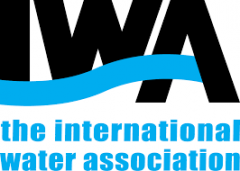Objectives
The objective of the Specialist Group (SG) is to address and promote all aspects of modelling, simulation and the formal methods of applying systems analysis to managing and improving the quality of the aquatic environment. The MIA SG targets people from research, consulting companies, institutions and operators to consider and apply the use of models and computing tools to support the understanding, management and optimisation of water systems. This includes the development and application of mathematical models and modelling tools, such as optimisation algorithms, time-series analysis and forecasting, computational procedures for decision analysis and support, uncertainty analysis… It hereby stimulates transfer of knowledge between academia and industry and between different areas within the water cycle. The Group is also responsible for maintaining a forum for the discussion of inter-disciplinary issues within the IWA to augment the engineering and economic elements of problem-solving with those having human, institutional and cultural dimensions to them. The SG is also directed, therefore, at developing and promoting the application of systematic procedures for Integrated Assessment.
Focus
With almost yearly activities in the form of Specialist Conferences, Watermatex – Washington DC USA (May 2007), San Sebastian Spain (June 2011), Gold Coast, Australia (June 2015) – and the WWTmod series – Québec, Canada (June 2008, March 2010, March 2012), Annecy, France (April 2016) – this group, formerly known as the Systems Analysis and Integrated Assessment (SAIA) Specialist Group, targets people from research, consulting companies, institutions and operators to think along the use of models and computing tools to support the understanding, management and optimisation of water systems. The new name reflects better the actual direction of the group.
The “Specialist Group” on Modelling Integrated Assessment might more properly be called the “Generalist Group”. The MIA group focuses on general approaches to solving a wide range of water-related problems within an interdisciplinary framework that relies a lot on different types of models. While methodology-focused, the group’s interest extends to applications, of course, but is not restricted to any single discipline; we deal with problems in sewer systems and water treatment, and surface-water and ground-water systems.
The first part of our charter-solving problems-leads us to explore such disciplines as systems analysis, simulation, mathematical modelling, control, optimisation, time-series analysis and forecasting, and decision analysis and support. The second part of our charter-integrated assessment-brings all aspects of a problem together, and it is particularly concerned with such issues as the social and economic impacts of solutions to these problems.
The MIA constitution is available here. Working Groups can now be formed within the MIA Specialist Group. This document discusses the definition of and outlines the procedure for starting such a Working Group.
Next to the above mentioned Specialist Conferences (the first Watermatex was held in 1987!) other activities of the Specialist Group include hosting and supporting Task Groups and Working Groups.
- The TG of Benchmarking of Control Strategies promotes the use of the benchmark simulation protocols (BSM1, BSM1_LT and BSM2).
- The TG of Good Modelling Practice provides practical guidance to users of Activated Sludge Models (ASMs) around the world.
- The TG of Design and Operations Uncertainty increases efficiency and transparency of wastewater infrastructure (design/operations) via the use of numerical simulation including statistical analysis.
- The TG of Generalised Physico-chemical Modelling develops a physico-chemical framework with high predictive capacity that is usable across the range of unit operations by both modellers and end-users.
- The TG of Use of Modelling for Minimising GHG Emissions from Wastewater Systems helps to understand the processes that are responsible for the major contributions to GHG emissions from WWTPs and sewer systems and then translates this knowledge into modelling tools and provide guidance on how to use them for mitigating GHG emissions.
- The WG of Integrated Urban Water Systems (MIUWS) promotes the exchange of ideas and experiences for use and development of tools and methods for modelling integrated urban water systems.
- The WG of Computational Fluid Dynamics promotes the exchange of ideas and experiences regarding the use of CFD in the field of water and wastewater treatment.
- The WG of Life Cycle Analysis facilitates the exchange of ideas and develops consensual methodologies, in order to promote better use of LCA in the urban water systems.
Conferences
The SG also convenes high-impact conferences and workshops in the field, such as the WRRmod (previously known as WWTmod) and Watermatex conferences. WRRmod aims to bring together modellers from academia and industry, focusing on discussion rather than one-way presentations and encouraging a critical dialogue and convergence of ideas. Watermatex aims to solve water problems with systems analysis tools in the wide application fields including sewer systems and water treatment, surface and groundwater, technical and natural systems.
Ambitions
One of the current priorities of the SG is to interact and streamline activities with other IWA SGs, as well as with other academic and professional organisations, to establish strong collaborations within the relevant fields that would utilise models or other tools MIA develops (e.g., TGs, WGs) to address challenges related to modelling. The proposed initiatives include organising MIA related sessions at conferences of others SGs; SG Leaders Forum; IWA Strategic Council sub-committee on SGs; road map for collaborations based on the Global Trend Report 2016; making inventory of existing collaborations; organising MIA webinars; and encouraging other SGs to post modelling questions on the MIA webpage at IWAConnect.
Download our flyer and feel free to share it with your colleagues.

